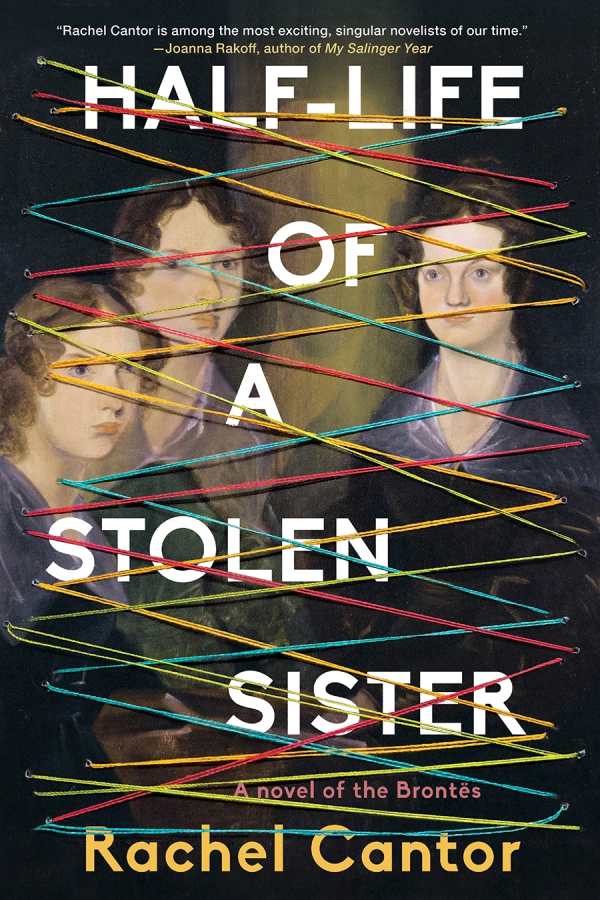
Half-Life of a Stolen Sister
Imagination runs wild in Rachel Cantor’s historical novel Half-Life of a Stolen Sister, an innovative spin on the lives and work of the Brontë sisters.
Maria’s mother is unwell. She no longer takes care of Maria’s younger siblings, soothes her husband’s temper, or hums songs under her breath. Knowing that her death is approaching, this matriarch gathers her six children and speaks to each of them in turn. She exhorts Maria to take care of her siblings, and then she dies.
But Maria is too young to fulfill her mother’s wish, and her father is incapable of taking care of his children himself. Thus, Maria is sent to school with three of her sisters. She and Elizabeth succumb to illness due to neglect and the school’s poor living conditions. Her surviving siblings, who now live with their emotionally distant father and a stern aunt, disappear into a fantasy world of their own creation, Glass Town.
Cantor spins the known biographies of the Brontë siblings into a surrealist, eccentric story where modernity blends with the archaic. The chapters are written in prose, poetry, and dialogue, in the form of letters, screenplays, transcripts, and diaries. Told from inside the dreamscape of a child’s vibrant mind, an alternative universe is created wherein the imagined is real, and reality is a scary dream.
As the Brontës grow into adulthood, the imagined recedes and reality takes over. One by one, the remaining siblings pass away, leaving their father as the sole survivor of his once large family.
Previous knowledge about the Brontës facilitates understanding herein. The simultaneous rivalry and unconditional love between the siblings is a situation that’s universal, though. Half-Life of a Stolen Sister is an eccentric historical novel that retells the story of the Brontë family with flair.
Reviewed by
Erika Harlitz Kern
Disclosure: This article is not an endorsement, but a review. The publisher of this book provided free copies of the book to have their book reviewed by a professional reviewer. No fee was paid by the publisher for this review. Foreword Reviews only recommends books that we love. Foreword Magazine, Inc. is disclosing this in accordance with the Federal Trade Commission’s 16 CFR, Part 255.
